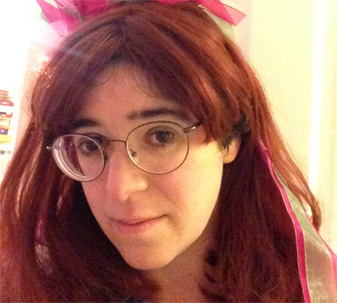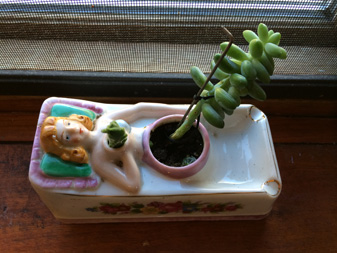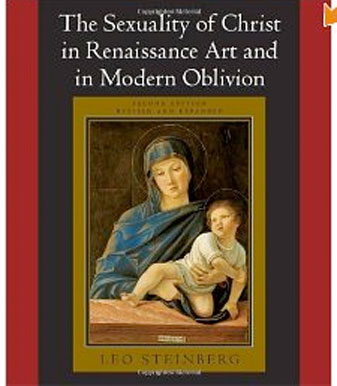As my readers doubtless know from the national news, the killing of unarmed African-American men and boys by white police officers has sparked protest movements across the country, challenging us white Americans to confront our participation in a racist law enforcement system.
On Aug. 9 in Ferguson, MO, Officer Darren Wilson shot unarmed 18-year-old Michael Brown; the grand jury declined to indict Wilson on Nov. 24, even though the conflicting testimony about what happened during the police stop would seem to warrant a jury trial. On July 17 in Staten Island, NY, police stopped Eric Garner for allegedly selling contraband cigarettes. Officer Daniel Pantaleo used a chokehold on him that was banned by NYPD rules, suffocating the unarmed and asthmatic Garner. Last week the NY grand jury declined to indict Pantaleo.
Meanwhile, on Nov. 22 in Cleveland, OH, a cop shot and killed 12-year-old Tamir Rice for playing with a toy gun at a playground. Twelve years old. A toy gun. Just think about that for a moment.
These are just two of the many unarmed black men and boys who are killed by the police each year in our “post-racial” society. Activists on Twitter have been posting their names in hashtags but can’t even keep up.
I honestly have not known what to write about this because there isn’t much I can say except “FUCK” and “I’m sorry”.
I’m not bringing this up now to get cookies for being an ally (a title I still have to earn). It’s just reached the point where not saying something would be a sign of not caring. As a white person, I have the dubious privilege of prioritizing other issues. But I don’t want to get off the hook.
I know how much I appreciate it when men believe women about sexism, or when people who’ve had normal families work to overcome their misconceptions about trauma survivors. In doing activism around the issues that affect me personally, I’ve gotten a glimpse of how it feels to suffer from other kinds of prejudice. I want to turn that empathy into effective action, and that starts with listening to African-American voices.
So I’m using the rest of this post to recommend some of the books, websites, and Twitter feeds that are helping me begin my education in racism and racial justice. Please feel free to share your own favorites in the comments.
Important advice: If you’re new to this issue and decide to check out these blogs and Twitter feeds, don’t jump into the conversation right away. Spend a good amount of time just reading and learning how this community sees the world, whether or not you agree. Remember that people are the experts on their own experience. No one is right all the time, but people of color have better attunement to racism than white people do, because they’re on the receiving end.
Books
Michelle Alexander, The New Jim Crow: Mass Incarceration in the Age of Colorblindness (The New Press, 2010)
Civil rights law professor lays out a devastating case that the criminal justice system created by the War on Drugs is rigged against men of color, at every stage from stop-and-frisk to sentencing.
Roxane Gay, Bad Feminist (HarperCollins, 2014)
Witty novelist and pop-culture critic explores the intersections and contradictions of our cultural myths around race and gender.
bell hooks, Ain’t I a Woman: Black Women and Feminism (South End Press, 1981) and All About Love: New Visions (William Morrow, 2001)
hooks’s passionate first book argues that black women have been doubly marginalized by white feminists and by black men trying to gain status in a patriarchal society. The first chapter, describing the systemic sexual abuse of black women under slavery, is harrowing but a must-read. All About Love is an incisive and uplifting book that proposes that real love is inseparable from justice, seeing and being seen authentically.
Websites
Colorlines is a daily news site about racial justice issues in politics, the arts, and the media, offering award-winning original reporting and news analysis. (Twitter: @Colorlines) Check out this article about how white Americans can unlearn racism.
The Crunk Feminist Collective features black women writers on topics such as media representation, discrimination and micro-aggressions in the workplace, police brutality, and abuses in the criminal justice system. (Twitter: @crunkfeminists)
Dear White People is the Tumblr companion to the 2014 movie, an excellent satire about black students at an elite university and the different strategies they use to navigate around cultural stereotypes and double standards. A book is forthcoming.
Gradient Lair is a womanist blog about black women and art, social media, social politics, and culture. (Twitter: @GradientLair and @TheTrudz)
Political Jesus is a multi-authored Christian theology blog with interests in social justice, science fiction, pop culture, and racial issues in the church. (Twitter: @Political_Jesus)
@Karnythia (Mikki Kendall, fiction writer and blogger at hoodfeminism.com)
@ProfessorCrunk (Brittney Cooper, columnist at Salon)
@TaNehisiCoates (Ta-Nehisi Coates, columnist at The Atlantic, author of their 2014 cover story on slavery reparations)
@TheFerocity (Saeed Jones, poet and Buzzfeed LGBT columnist)
@TressieMcPhd (Sociology professor at Emory University, writes about racial issues in academia)
@WritersofColour (Media Diversified, a UK think tank tackling the lack of diversity in media)



